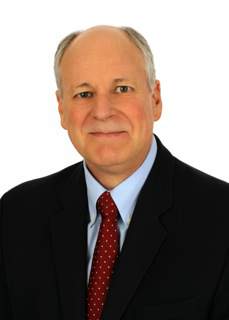User login
A new research initiative for multiple sclerosis is seeking to recruit 20,000 people with MS – about 5% of the estimated U.S. population with the disease – by this September, and aims to change the way MS research is conducted.
The web-based initiative, called iConquerMS, was formed with the help of a nearly $1 million contract from the Patient-Centered Outcomes Research Institute, set up under the Affordable Care Act of 2010. iConquerMS is led by the Accelerated Cure Project for MS, a nonprofit research organization based in Waltham, Mass.
Among the group’s initiatives is OPT-UP, a 5-year, clinic-based study designed to compare patient outcomes from all the approved MS treatments and develop the evidence base for personalized medicine for MS. iConquerMS grew out of Accelerated Cure’s large-scale biospecimen and data repository as well as the planning phase of OPT-UP, said Robert McBurney, Ph.D., the CEO of Accelerated Cure and the principal investigator for iConquerMS.
“Patients recruited into OPT-UP could become part of iConquerMS. But OPT-UP seeks only 2,500 patients,” Dr. McBurney said, “while iConquerMS is soliciting participation from a much larger number of MS patients along with other participants, such as friends and relatives of people with MS, who want to contribute their data.”
The combination of the registry and OPT-UP “gives us the pathway to start a very long-term study of MS,” Dr. McBurney said. “Perhaps the children of people with MS will sign up as well. OPT-UP plus iConquerMS really has the possibility of becoming the Framingham of MS.” To date, iConquerMS has enrolled about 1,000 participants, who are encouraged to contribute their health information through both surveys and electronic health records.
iConquerMS joins a handful of existing MS patient registries, including the 20-year-old North American Research Committee on Multiple Sclerosis, or NARCOMS, a nonprofit registry with more than 36,000 patients, and the newly established North American Registry for Care and Research in MS, or NARCRMS. Patients Like Me, a for-profit registry founded in 2004 for people with chronic diseases, now counts about 38,000 members with MS.
June Halper, CEO of the Hackensack, N.J.-based Consortium of Multiple Sclerosis Centers, which administers NARCOMS and NARCRMS, said that while there is some sense of competition among the MS registries, there should be no dearth of patients to enroll and many opportunities to collaborate.
“We hope that not too far into this picture we will be able to work with iConquerMS,” she said. “Because the more we know about MS from the patient’s perspective, the better it’s going to be. One of the things we don’t have is any kind of comparative study comparing outcomes of one disease-modifying drug to another, and OPT-UP is seeking to do that, which is very important,” she said.
Ms. Halper said that in 1995, when the NARCOMS registry was established, “all we could do was symptomatic management, and we could treat relapses, but there were no disease-modifying therapies. We didn’t have MRI. We had rehab but we didn’t know much about it. People with MS were told to rest a lot by their neurologists.”
The NARCOMS surveys – now mostly online – were conducted then as mailed questionnaires. De-identified patient-reported data from NARCOMS have since generated dozens of papers with findings on smoking, Vitamin D, reproduction, depression and fatigue, comorbidities, and other subjects.
Dr. McBurney noted that the patient-centric approach is consistent with broader trends in MS clinical research favoring more nuanced measures of patient outcomes – “well beyond MRI and the 25-foot walk,” he said. “These don’t capture the whole experience, and it’s important to incorporate the patient voice in outcome measures.”
NARCOMS relies exclusively on patient-reported information, not demanding medical records or validation of disease status, though one study found that virtually all participants have an MS diagnosis, Ms. Halper said. Patients Like Me is similarly reliant on patient-reported data.
The two new initiatives, iConquerMS and NARCRMS, differ from prior registries in that they add a significant component of physician-reported data to complement the patient portal. iConquerMS, for example, requests submission of electronic health records. “The anchor of the EHR is helpful to confirm some of the information contributed by the patient, but the most important part is patient-reported health information,” Dr. McBurney said.
NARCRMS – launched as a complement to NARCOMS – focuses as much on physician reports as patient reports to create “a concurrent longitudinal database that simultaneously captures both patient-based and physician-based information,” according to its website. The site, which will incorporate imaging data, is modeled closely after an open-access Alzheimer’s disease database, the Alzheimer’s Disease Neuroimaging Initiative. Participating patients will be able to access the database to see how they compare with others.
Industry participation varies among the registries. NARCOMS does not receive money from industry except for use in selected studies, while Patients Like Me sells de-identified patient data to pharmaceutical and device manufacturers. NARCRMS allows its industry sponsors full access to its data, and iConquerMS has also received industry support.
Ms. Halper said that the proliferation of registries should bring MS research closer to that seen with other chronic diseases. While people are being diagnosed more quickly, and more treatments are available, there is still a lot of work to be done, she said. “We don’t know a heck of a lot about MS, and everybody wants to know more. We need data.”
Dr. McBurney concurred. “We’re making an impact on the early relapsing-remitting phase of the disorder, but to date no drugs have been approved for progressive MS – maybe they’re not even the same disease. We still have very little idea which patient is going to benefit from any particular treatment strategy without experiencing troubling side effects,” he said.
A new research initiative for multiple sclerosis is seeking to recruit 20,000 people with MS – about 5% of the estimated U.S. population with the disease – by this September, and aims to change the way MS research is conducted.
The web-based initiative, called iConquerMS, was formed with the help of a nearly $1 million contract from the Patient-Centered Outcomes Research Institute, set up under the Affordable Care Act of 2010. iConquerMS is led by the Accelerated Cure Project for MS, a nonprofit research organization based in Waltham, Mass.
Among the group’s initiatives is OPT-UP, a 5-year, clinic-based study designed to compare patient outcomes from all the approved MS treatments and develop the evidence base for personalized medicine for MS. iConquerMS grew out of Accelerated Cure’s large-scale biospecimen and data repository as well as the planning phase of OPT-UP, said Robert McBurney, Ph.D., the CEO of Accelerated Cure and the principal investigator for iConquerMS.
“Patients recruited into OPT-UP could become part of iConquerMS. But OPT-UP seeks only 2,500 patients,” Dr. McBurney said, “while iConquerMS is soliciting participation from a much larger number of MS patients along with other participants, such as friends and relatives of people with MS, who want to contribute their data.”
The combination of the registry and OPT-UP “gives us the pathway to start a very long-term study of MS,” Dr. McBurney said. “Perhaps the children of people with MS will sign up as well. OPT-UP plus iConquerMS really has the possibility of becoming the Framingham of MS.” To date, iConquerMS has enrolled about 1,000 participants, who are encouraged to contribute their health information through both surveys and electronic health records.
iConquerMS joins a handful of existing MS patient registries, including the 20-year-old North American Research Committee on Multiple Sclerosis, or NARCOMS, a nonprofit registry with more than 36,000 patients, and the newly established North American Registry for Care and Research in MS, or NARCRMS. Patients Like Me, a for-profit registry founded in 2004 for people with chronic diseases, now counts about 38,000 members with MS.
June Halper, CEO of the Hackensack, N.J.-based Consortium of Multiple Sclerosis Centers, which administers NARCOMS and NARCRMS, said that while there is some sense of competition among the MS registries, there should be no dearth of patients to enroll and many opportunities to collaborate.
“We hope that not too far into this picture we will be able to work with iConquerMS,” she said. “Because the more we know about MS from the patient’s perspective, the better it’s going to be. One of the things we don’t have is any kind of comparative study comparing outcomes of one disease-modifying drug to another, and OPT-UP is seeking to do that, which is very important,” she said.
Ms. Halper said that in 1995, when the NARCOMS registry was established, “all we could do was symptomatic management, and we could treat relapses, but there were no disease-modifying therapies. We didn’t have MRI. We had rehab but we didn’t know much about it. People with MS were told to rest a lot by their neurologists.”
The NARCOMS surveys – now mostly online – were conducted then as mailed questionnaires. De-identified patient-reported data from NARCOMS have since generated dozens of papers with findings on smoking, Vitamin D, reproduction, depression and fatigue, comorbidities, and other subjects.
Dr. McBurney noted that the patient-centric approach is consistent with broader trends in MS clinical research favoring more nuanced measures of patient outcomes – “well beyond MRI and the 25-foot walk,” he said. “These don’t capture the whole experience, and it’s important to incorporate the patient voice in outcome measures.”
NARCOMS relies exclusively on patient-reported information, not demanding medical records or validation of disease status, though one study found that virtually all participants have an MS diagnosis, Ms. Halper said. Patients Like Me is similarly reliant on patient-reported data.
The two new initiatives, iConquerMS and NARCRMS, differ from prior registries in that they add a significant component of physician-reported data to complement the patient portal. iConquerMS, for example, requests submission of electronic health records. “The anchor of the EHR is helpful to confirm some of the information contributed by the patient, but the most important part is patient-reported health information,” Dr. McBurney said.
NARCRMS – launched as a complement to NARCOMS – focuses as much on physician reports as patient reports to create “a concurrent longitudinal database that simultaneously captures both patient-based and physician-based information,” according to its website. The site, which will incorporate imaging data, is modeled closely after an open-access Alzheimer’s disease database, the Alzheimer’s Disease Neuroimaging Initiative. Participating patients will be able to access the database to see how they compare with others.
Industry participation varies among the registries. NARCOMS does not receive money from industry except for use in selected studies, while Patients Like Me sells de-identified patient data to pharmaceutical and device manufacturers. NARCRMS allows its industry sponsors full access to its data, and iConquerMS has also received industry support.
Ms. Halper said that the proliferation of registries should bring MS research closer to that seen with other chronic diseases. While people are being diagnosed more quickly, and more treatments are available, there is still a lot of work to be done, she said. “We don’t know a heck of a lot about MS, and everybody wants to know more. We need data.”
Dr. McBurney concurred. “We’re making an impact on the early relapsing-remitting phase of the disorder, but to date no drugs have been approved for progressive MS – maybe they’re not even the same disease. We still have very little idea which patient is going to benefit from any particular treatment strategy without experiencing troubling side effects,” he said.
A new research initiative for multiple sclerosis is seeking to recruit 20,000 people with MS – about 5% of the estimated U.S. population with the disease – by this September, and aims to change the way MS research is conducted.
The web-based initiative, called iConquerMS, was formed with the help of a nearly $1 million contract from the Patient-Centered Outcomes Research Institute, set up under the Affordable Care Act of 2010. iConquerMS is led by the Accelerated Cure Project for MS, a nonprofit research organization based in Waltham, Mass.
Among the group’s initiatives is OPT-UP, a 5-year, clinic-based study designed to compare patient outcomes from all the approved MS treatments and develop the evidence base for personalized medicine for MS. iConquerMS grew out of Accelerated Cure’s large-scale biospecimen and data repository as well as the planning phase of OPT-UP, said Robert McBurney, Ph.D., the CEO of Accelerated Cure and the principal investigator for iConquerMS.
“Patients recruited into OPT-UP could become part of iConquerMS. But OPT-UP seeks only 2,500 patients,” Dr. McBurney said, “while iConquerMS is soliciting participation from a much larger number of MS patients along with other participants, such as friends and relatives of people with MS, who want to contribute their data.”
The combination of the registry and OPT-UP “gives us the pathway to start a very long-term study of MS,” Dr. McBurney said. “Perhaps the children of people with MS will sign up as well. OPT-UP plus iConquerMS really has the possibility of becoming the Framingham of MS.” To date, iConquerMS has enrolled about 1,000 participants, who are encouraged to contribute their health information through both surveys and electronic health records.
iConquerMS joins a handful of existing MS patient registries, including the 20-year-old North American Research Committee on Multiple Sclerosis, or NARCOMS, a nonprofit registry with more than 36,000 patients, and the newly established North American Registry for Care and Research in MS, or NARCRMS. Patients Like Me, a for-profit registry founded in 2004 for people with chronic diseases, now counts about 38,000 members with MS.
June Halper, CEO of the Hackensack, N.J.-based Consortium of Multiple Sclerosis Centers, which administers NARCOMS and NARCRMS, said that while there is some sense of competition among the MS registries, there should be no dearth of patients to enroll and many opportunities to collaborate.
“We hope that not too far into this picture we will be able to work with iConquerMS,” she said. “Because the more we know about MS from the patient’s perspective, the better it’s going to be. One of the things we don’t have is any kind of comparative study comparing outcomes of one disease-modifying drug to another, and OPT-UP is seeking to do that, which is very important,” she said.
Ms. Halper said that in 1995, when the NARCOMS registry was established, “all we could do was symptomatic management, and we could treat relapses, but there were no disease-modifying therapies. We didn’t have MRI. We had rehab but we didn’t know much about it. People with MS were told to rest a lot by their neurologists.”
The NARCOMS surveys – now mostly online – were conducted then as mailed questionnaires. De-identified patient-reported data from NARCOMS have since generated dozens of papers with findings on smoking, Vitamin D, reproduction, depression and fatigue, comorbidities, and other subjects.
Dr. McBurney noted that the patient-centric approach is consistent with broader trends in MS clinical research favoring more nuanced measures of patient outcomes – “well beyond MRI and the 25-foot walk,” he said. “These don’t capture the whole experience, and it’s important to incorporate the patient voice in outcome measures.”
NARCOMS relies exclusively on patient-reported information, not demanding medical records or validation of disease status, though one study found that virtually all participants have an MS diagnosis, Ms. Halper said. Patients Like Me is similarly reliant on patient-reported data.
The two new initiatives, iConquerMS and NARCRMS, differ from prior registries in that they add a significant component of physician-reported data to complement the patient portal. iConquerMS, for example, requests submission of electronic health records. “The anchor of the EHR is helpful to confirm some of the information contributed by the patient, but the most important part is patient-reported health information,” Dr. McBurney said.
NARCRMS – launched as a complement to NARCOMS – focuses as much on physician reports as patient reports to create “a concurrent longitudinal database that simultaneously captures both patient-based and physician-based information,” according to its website. The site, which will incorporate imaging data, is modeled closely after an open-access Alzheimer’s disease database, the Alzheimer’s Disease Neuroimaging Initiative. Participating patients will be able to access the database to see how they compare with others.
Industry participation varies among the registries. NARCOMS does not receive money from industry except for use in selected studies, while Patients Like Me sells de-identified patient data to pharmaceutical and device manufacturers. NARCRMS allows its industry sponsors full access to its data, and iConquerMS has also received industry support.
Ms. Halper said that the proliferation of registries should bring MS research closer to that seen with other chronic diseases. While people are being diagnosed more quickly, and more treatments are available, there is still a lot of work to be done, she said. “We don’t know a heck of a lot about MS, and everybody wants to know more. We need data.”
Dr. McBurney concurred. “We’re making an impact on the early relapsing-remitting phase of the disorder, but to date no drugs have been approved for progressive MS – maybe they’re not even the same disease. We still have very little idea which patient is going to benefit from any particular treatment strategy without experiencing troubling side effects,” he said.


